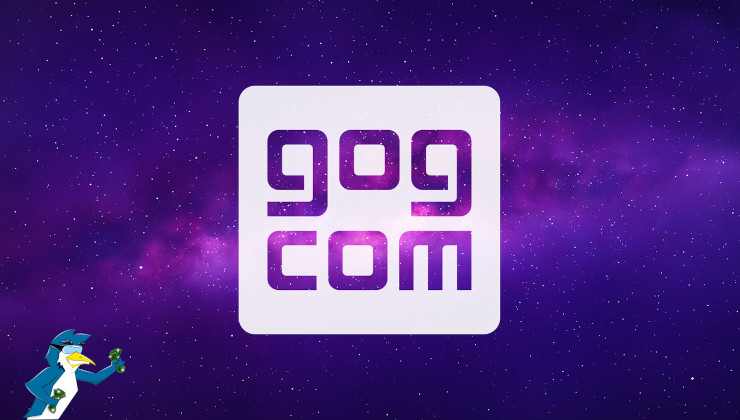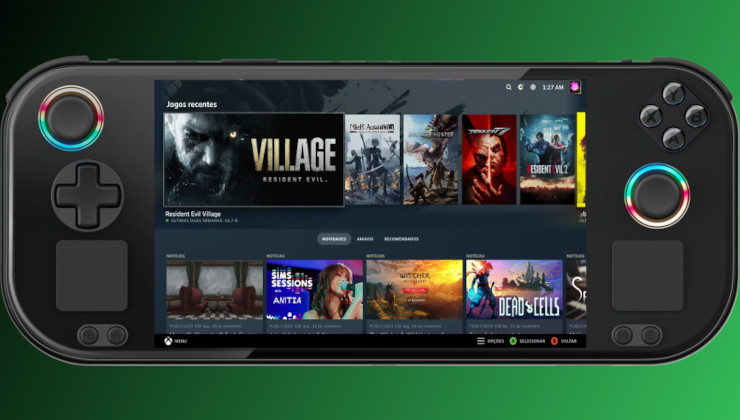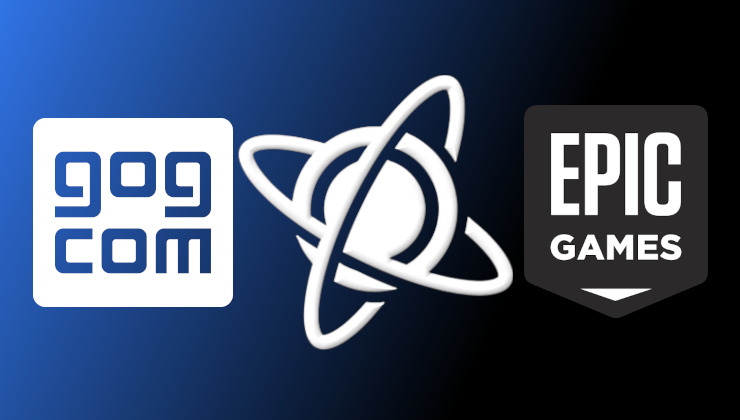Supraland, the colourful and inviting first-person puzzle game from Supra Games is now going to be removed from game store GOG after less than a year being there.
Looking at the dates: it released on Steam in April 2019, then came to Linux in July that same year and then onto GOG in that same month. Today, June 9 in 2020 the GOG team posted on their forum that Supraland will be delisted from their store at the developer's request but it will stay in your GOG library. That's not long to be on a store to then ask for it to be removed, so why?
The developer has been quite vocal about it all, as it turns out. Back in July 2019, we posted an article about the developer saying some strange stuff about both GOG and Linux and it seems their opinion didn't change after being live on GOG for some time, as they said on Steam in May this year:
Going onto GOG I expected maybe something like 10% of Steam, but it's more like 1%. Same with releasing a Linux version. It's all worth so little for us that it's rather annoying to have to do the extra work all the time and carry that weight around. I wouldn't do it again.
Sounds like a case of heavily inflated expectations, mixed with some naivety. Still, it's better to request removal than to leave it up and not support it at all, so it sounds like they're doing the right thing overall.
In other posts they also mentioned how in relation to DRM-free gaming that "98-99% of players don't care" and that if there's any "crying about DRM stuff in the gamer scene, it must come from a really vocal but tiny minority. 1-2% tiny". That's some pretty tough words for the DRM-free crowd.
As for the Linux build of Supraland, it appears to have been suffering a few issues lately as posts on Steam will show and the developer isn't sure what they will do so the Linux build may be pulled too see: #1 and #2. They've never been particularly confident about it either as they said before a few times, and it appears they don't know how to support the Linux version. If they do announce a decision on that bit, we will let you know.
On topic, my only comment is that if this dev is enjoying some sort of success right now, with that kind of behavior, he's probably not going to get any kind of following from his audience. It has nothing to do with talent, I think this game is good enough, but this is definitely the wrong attitude towards his customers. It could work for a larger company like Activision or EA (to name two of the worst I can think of), but for indie devs, it could be fatal.
If anyone agrees with DRM, they're insane. That's actively being okay with your rights being diminished. Convenience is a whole different argument remember, that should be entirely separate. There's also a big difference between not caring and not actually understanding how shite some DRM really is...how in relation to DRM-free gaming that "98-99% of players don't care"
But it's true. Does anyone disagree?
If anyone agrees with DRM, they're insane. That's actively being okay with your rights being diminished. Convenience is a whole different argument remember, that should be entirely separate. There's also a big difference between not caring and not actually understanding how shite some DRM really is...how in relation to DRM-free gaming that "98-99% of players don't care"
But it's true. Does anyone disagree?
True - if you had to choose between a Steam with DRM and a Steam without, no-one (absolutely no-one) would choose the DRM version.
But of course, I do choose Steam over GOG, and that's because of convenience. I like the time tracking, the achievements, the friend notifications, workshop mods, chat, and easy voice integration, I benefit from their multiplayer framework. I value the auto-updates, integrated Proton and one-click installs. GOG has... none of that, but they're DRM-free, and they're better curated. Maybe if you're on Windows, GOG is a better proposition - you have the Galaxy client that at least offers some of the Steam features I just listed.
Itch is certainly miles ahead of GOG these days, for us penguins.
I tried the demo for this and the performance was indeed horrible. Shame, as it’s supposedly very good.
I think this is may be one of those cases where hardware makes all the difference and confounds a dev new to Linux. The game played clean and smooth on my system, whereas you and others had problems --- which is terrible because it really is quite a fun game.
Last edited by Nanobang on 10 Jun 2020 at 11:23 am UTC
It is worth to note that the developer didn't support linux, he just compiled it for linux with unreal and released it without tweaking anything. The "port" performs very poorly. I read this on the steam forums a few months ago and I saw the dev recommending proton and that he wants to drop the native version.Weird, it was running flawlessly for me, and I put in quite a few hours into it, though stopped playing it for some reason (I do that randomly though, nothing against the game).
Same here, on both counts.
It ran perfectly for me. For those whom it's run poorly, as has been the case not infrequently in the past, I'm thinking it's gonna be an AMD / Nvidia / dev inexperience thing.
(I also quit playing after several hours of enjoyment. I think mostly because the puzzles started requiring some real thought, and my tired brain is so rarely up for those kind of challenges in my entertainment. I've discovered to my dismay over the years that I'm much more a "see bad thing, shoot bad thing" kind of player.)
If anyone agrees with DRM, they're insane. That's actively being okay with your rights being diminished. Convenience is a whole different argument remember, that should be entirely separate. There's also a big difference between not caring and not actually understanding how shite some DRM really is.If you omit the conspiracy theory and so on, then normal DRM is not dangerous and everything is fine with it.
So what qualifies as "normal DRM"? As far as I can tell, there is no conspiracy theory around it, just some technical facts and gross implementations in some cases. Indeed some DRM solutions can be better, but at the end of the day it is still inefficient against piracy and can break a game completely when you have a legit copy. It brings more trouble than it solves.If anyone agrees with DRM, they're insane. That's actively being okay with your rights being diminished. Convenience is a whole different argument remember, that should be entirely separate. There's also a big difference between not caring and not actually understanding how shite some DRM really is.If you omit the conspiracy theory and so on, then normal DRM is not dangerous and everything is fine with it.
Last edited by omer666 on 10 Jun 2020 at 6:37 pm UTC
If you omit the conspiracy theory and so on, then normal DRM is not dangerous and everything is fine with it.
DRM is malicious by definition. So you can't omit "conspiracy theory", or rather to rephrase it in normal terms, you can't start treating DRM as harmless and something to ever be trusted, because it's always aimed against you.
DRM doesn't trust you and treats you as a potential criminal apriory. So even from basic security perspective, you should treat DRM as a malware apriori in return. Trust can only be mutual.
And there is no such thing as "normal" DRM, because DRM is always an overreaching preemptive policing aimed against the user. It's unethical because it's overreaching and preemptive.
Last edited by Shmerl on 10 Jun 2020 at 7:01 pm UTC
There is one benefit the DRM!If you omit the conspiracy theory and so on, then normal DRM is not dangerous and everything is fine with it.
DRM is malicious by definition. So you can't omit "conspiracy theory", or rather to rephrase it in normal terms, you can't start treating DRM as harmless and something to ever be trusted, because it's always aimed against you.
DRM doesn't trust you and treats you as a potential criminal apriory. So even from basic security perspective, you should treat DRM as a malware apriori in return. Trust can only be mutual.
And there is no such thing as "normal" DRM, because DRM is always an overreaching preemptive policing aimed against the user. It's unethical because it's overreaching and preemptive.
Spoiler, click me
But of course, I do choose Steam over GOG, and that's because of convenience. I like the time tracking, the achievements, the friend notifications, workshop mods, chat, and easy voice integration, I benefit from their multiplayer framework. I value the auto-updates, integrated Proton and one-click installs. GOG has... none of that, but they're DRM-free, and they're better curated. Maybe if you're on Windows, GOG is a better proposition - you have the Galaxy client that at least offers some of the Steam features I just listed.
This a hundred times over. I barely ever buy anything on GOG anymore because the linux gaming experience on Steam is just better. I recently tried to get a game going from GOG using Lutris and after half an hour trying to get it to work I just gave up! Steam has totally spoiled me.
Anyway a little more to the point, I think you guys are being too tough on the devs and not tough enough on GOG. The DRM-free crowd is by-and-large the linux crowd; GOG has taken the awkward position of appealing to the ideals of this group but not their convenience.
DRM doesn't trust you and treats you as a potential criminal apriory. So even from basic security perspective, you should treat DRM as a malware apriori in return. Trust can only be mutual.
Do you trust random people?
Do you leave your door or car open?
Does GOG have the infrastructure to split sales between multiple publishers, depending on the platform a game is downloaded to? If not, that could explain why.
They could still do it as Steam did some years ago for a couple of games, like selling "Shadow of the Tomb Raider" and "Shadow of the Tomb Raider (Linux)"
Do you trust random people?
Do you leave your door or car open?
Random people don't come to your house to spy on you or to restrict what you can do. And if they try - they should be treated as a security threat.
DRM comes to your private digital space to do just that (it runs on your computer, on your OS and etc.), because some control freaks decided that you are a potential criminal. So DRM should be always treated as digital adversary, aka malware and security threat.
Idea of DRM proponents was summarized very well [here](https://en.wikipedia.org/wiki/Sony_BMG_copy_protection_rootkit_scandal#Background):
The industry will take whatever steps it needs to protect itself and protect its revenue streams... It will not lose that revenue stream, no matter what... Sony is going to take aggressive steps to stop this. We will develop technology that transcends the individual user. We will firewall Napster at source – we will block it at your cable company. We will block it at your phone company. We will block it at your ISP. We will firewall it at your PC... These strategies are being aggressively pursued because there is simply too much at stake.
That's the mentality behind any DRM - invade your space and control you.
Last edited by Shmerl on 11 Jun 2020 at 3:12 pm UTC
Do you trust random people?
Do you leave your door or car open?
Random people don't come to your house to spy on you or to restrict what you can do.
That's neither what I was taking about nor what the quote from you was about.
You complained that "DRM doesn't trust you and treats you as a potential criminal apriory." - and that's what you're doing with random foreign people as well, and for a reason. There's bad people out there.
So, you cannot demand trust from companies (or other foreign people).
I don't know what to do with this. It doesn't mean that DRM is good and even less so that every measure of DRM is ok. I just wanted to point this out.
You complained that "DRM doesn't trust you and treats you as a potential criminal apriory." - and that's what you're doing with random foreign people as well, and for a reason. There's bad people out there.
I explained the difference. DRM is doing it in your private digital space, preemptively. That's unacceptable. I.e. imagine police placing surveillance cameras in yours and everyone's home "just in case", because someone might be a criminal. You get the idea why that's wrong. Exactly the same thing is wrong with DRM.
So, you cannot demand trust from companies (or other foreign people).
I can totally demand them to get lost with trying to preemptively police me in my private digital space.
Last edited by Shmerl on 11 Jun 2020 at 3:42 pm UTC
Imagine police placing surveillance cameras in yours and everyone's home "just in case", because someone might be a criminal. You get the idea why that's wrong. Exactly the same thing is wrong with DRM.
This is a great explanation of DRM. What a metaphor! The assumption that you're a criminal - the "just in case" assumption that no consumer can be trusted. Oof. Superb.
The crazy thing about this attitude is the almost barbara-streisand-effect it has on people who want to pay for a service but can't, because... DRM. You see it all the time.
I recently ran into it trying to play Driver: San Francisco on Steam. You can't, because Ubisoft have pulled the game from the internet in its entirety (no-one is really sure why). Even though I still have a Driver: San Francisco entry in Steam, it doesn't run, it fails with a "Failed to retrieve valid key" error. Turns out, the ONLY WAY to play this game now, is to pirate it!!
The same thing happens on Netflix, when they region-lock. People want to watch, want to pay, but end up either torrenting, or VPN'ing their way in. It actively creates "criminal" behaviour. Let's say that again - it ACTIVELY creates the behaviour that DRM is trying to prevent. You couldn't make it up...
Honestly, I kind of thought that with the death of DVD and then Bluray over the past decade, there would be a better attitude to all this (from Publishers) by now. But nope. I don't think it's getting worse... but it sure isn't getting better.
I have played the game and finished it. It was an amazing game so I heavily recommend it. If as I could read he only "compiled a linux version with unreal engine", I got to say that it doesn't suffer from any bugs. Slow for some people ? Maybe, I can't tell.
Let's say that again - it ACTIVELY creates the behaviour that DRM is trying to prevent. You couldn't make it up...
Yep, that's well known. DRM only increases piracy causing only more lost sales to those who use it. DRM itself also encourages some to crack it for sport.
I have played the game and finished it. It was an amazing game so I heavily recommend it. If as I could read he only "compiled a linux version with unreal engine", I got to say that it doesn't suffer from any bugs. Slow for some people ? Maybe, I can't tell.
So did I, 100%ed it without a single issue. Yes, performance is not that great, but it really isn't that great on Windows either. It's just that the basic double fps on dx11 makes it generally more playable.
However, at some point the dev must have changed something because it currently doesn't run at all. I suspect this is not a "Linux" issue, but a real bug that just happens to trigger (more?) on Linux. Solving this would be what multiplatform development is good for, finding problems with you code by running it through multiple systems. But it appears that just dropping it is easier for now. Until it fully breaks of course.
You complained that "DRM doesn't trust you and treats you as a potential criminal apriory." - and that's what you're doing with random foreign people as well, and for a reason. There's bad people out there.I don't know where you're from, but here in France if a shopkeeper starts being suspicious towards his clients, they just leave the shop and never come back.
So, you cannot demand trust from companies (or other foreign people









 How to play games from GOG and Epic Games on Linux, SteamOS and Steam Deck
How to play games from GOG and Epic Games on Linux, SteamOS and Steam Deck How to get Battlefield 3 and Battlefield 4 online working on Linux, SteamOS, Steam Deck
How to get Battlefield 3 and Battlefield 4 online working on Linux, SteamOS, Steam Deck